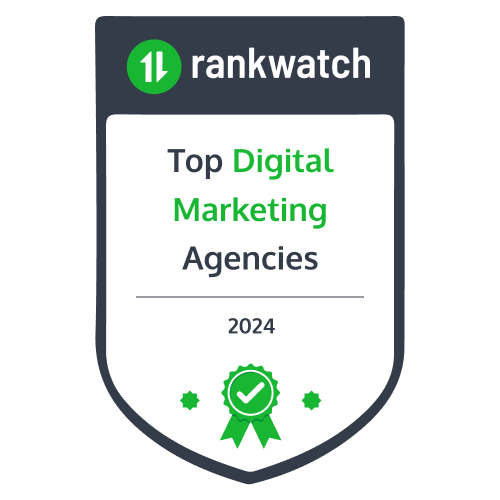Artificial Intelligence (AI) is not just a buzzword; it's a transformative force reshaping the marketing landscape. What was once seen as a novelty is now a vital tool for marketers, opening up a world of possibilities and opportunities.
AI marketing insights are crucial for staying ahead. They help businesses understand trends and adapt strategies. This is essential in a fast-paced digital world.
The pace of evolution in AI marketing trends is rapid. From predictive analytics to hyper-personalization, AI is driving change at a speed that demands marketers to keep up to remain competitive.
AI market analysis tools are becoming indispensable. They provide deep insights into consumer behavior. This allows for more informed decision-making.
AI marketing analytics is another game-changer. It helps measure campaign success and ROI. This data-driven approach is transforming marketing strategies.
Artificial intelligence in market research is also gaining traction. It offers new methods for gathering and analyzing data. This leads to more accurate consumer insights.
AI-driven marketing insights are revolutionizing customer engagement. They enable personalized experiences and targeted messaging. This enhances customer satisfaction and loyalty.
In this article, we'll explore these trends and more. Discover how AI is shaping the future of marketing. Stay informed and ready for what's next.
The Evolution of AI in Marketing: A Brief Overview
The rise of AI in marketing has been swift and impactful. Initially, AI was seen as a novelty. However, its capabilities have matured significantly over time.
In the early days, AI was primarily used for fundamental data analysis and processing. Marketers relied on AI to crunch numbers. This laid the groundwork for more advanced applications.
As AI technology advanced, new possibilities emerged. Machine learning algorithms improved ad targeting. AI began enhancing content recommendations for users.
Today, AI is ingrained in every facet of marketing. From automating mundane tasks to creating complex data-driven strategies, AI's role is pivotal. It streamlines operations while maximizing results.
Several key developments highlight this evolution:
- Predictive Analytics: Anticipating customer needs efficiently.
- Hyper-Personalization: Tailoring experiences to individual preferences.
- Real-Time Data Analysis: Agility in marketing decisions.
These trends underscore the transformative power of AI in marketing.
As AI continues to evolve, its integration in marketing will continue to deepen. Continuous innovation will drive future marketing success, reshaping how businesses engage with consumers.
Key AI Marketing Trends Shaping 2025 and Beyond
AI marketing trends are continuously evolving and reshaping the business landscape. By 2025, these transformations will become even more pronounced.
Hyper-personalization is becoming crucial. AI's ability to tailor marketing messages to individual preferences is unmatched. Consumers expect personal, relevant interactions.
Predictive analytics is another driving force. It enables marketers to foresee trends and adapt strategies proactively. Decision-making is thus becoming more data-driven and efficient.
AI-powered content creation is revolutionizing marketing. Automated systems generate content that resonates with target audiences quickly and effectively. Quality and engagement are simultaneously enhanced.
Automation is streamlining workflows significantly. AI frees marketers from repetitive tasks. This enables a greater focus on strategic planning and innovation.
Market research is also benefiting. AI provides deep insights into consumer behavior and market dynamics. Understanding customer needs is becoming more precise.
Looking ahead, AI will continue to dominate:
- Enhanced Customer Experience: Through seamless interactions.
- Improved Ad Targeting: By leveraging machine learning.
- Real-Time Adaptation: Ensuring agility in marketing campaigns.
In summary, AI is not just an option; it's a necessity for the evolution of marketing. Its application across various channels demonstrates its vast potential. As AI continues to evolve, its role in marketing will only deepen, making it crucial for marketers to embrace it.
1. Hyper-Personalization and Customer Experience
Hyper-personalization leverages AI to tailor experiences to each customer. By using data intelligently, businesses can effectively meet consumer expectations.
AI analyzes vast amounts of data effortlessly. It tracks purchase history, browsing habits, and engagement patterns. This information is then used to create personalized experiences.
Customized messages resonate more with consumers. As a result, conversion rates improve. Loyalty towards brands also grows stronger.
Key components of hyper-personalization include:
- Recommendation Engines: Suggest products based on previous interactions.
- Dynamic Content: Tailor website features and email content to user preferences.
- Personalized Offers: Provide discounts that reflect user interests.
Customer experience takes center stage with AI. Interactions become seamless across multiple channels. Personalization is no longer limited to luxury, but is now expected by all.
For marketers, mastering hyper-personalization is crucial. It requires a careful balance between technology and creativity. By understanding customer expectations, marketers can create impactful engagements.
2. Predictive Analytics and Data-Driven Decision Making
Predictive analytics, driven by AI, transforms data into actionable insights. This capability allows marketers to predict customer behavior with remarkable accuracy.
Understanding future trends provides a significant competitive edge. AI analyzes historical data to identify patterns and predict outcomes. This information informs marketing strategies in real-time.
Data-driven decision-making improves efficiency. Marketers no longer rely on guesswork. Instead, they make informed decisions to enhance campaign success.
Key applications of predictive analytics include:
- Customer Segmentation: Identify high-value and at-risk customer groups.
- Churn Prediction: Anticipate and reduce customer dropout rates.
- Demand Forecasting: Align inventories with future demand efficiently.
By embracing predictive analytics, businesses gain numerous benefits. Improved forecasting leads to better resource allocation. Campaigns become more targeted, resulting in increased return on investment.
The future of marketing lies in data. AI continues to drive advancements in this space, unlocking limitless possibilities. Data-driven decisions are the backbone of successful marketing.
3. AI-Powered Content Creation and Generation
AI is revolutionizing content creation in marketing. Automated tools now enable the creation of rich, engaging content efficiently.
Content marketing has always been vital. However, traditional methods are time-consuming and resource-intensive. AI technology changes this dynamic completely.
Automated content creation tools produce personalized messages at scale. They ensure consistency and quality across platforms. AI also optimizes content for search engines and social media.
Core advantages include:
- Scalable Production: Generate a high volume of content quickly.
- Quality Assurance: Maintain accuracy and relevance effortlessly.
- SEO Optimization: Enhance visibility through tailored content strategies.
With AI, marketers can focus on creativity while technology handles execution. Content strategies become more dynamic and responsive to market changes.
In the future, AI-driven content generation is expected to continue growing. Its integration offers marketers unparalleled creativity and agility. Crafting compelling narratives is now within reach for every brand.
4. Automation and Workflow Optimization
AI-driven automation is reshaping marketing workflows. Repetitive tasks are streamlined, allowing teams to focus on strategic initiatives.
Marketing departments benefit immensely from automation. Scheduling, data entry, and customer support processes are now automated. This increases efficiency and productivity dramatically.
Workflow optimization leads to better resource management. Teams can dedicate more time to creative endeavors. Innovation becomes a priority rather than an afterthought.
Key automation applications include:
- Email Campaigns: Automate sending schedules and audience segmentation for efficient email marketing.
- Social Media Management: Schedule posts and analyze engagement without manual intervention.
- Customer Support: Implement chatbots for immediate resolution of customer queries.
Automation creates new opportunities in marketing. Streamlined workflows facilitate collaboration across teams. Marketers can now envision bold, innovative strategies.
The future of marketing lies in automation. Leveraging AI technology enhances efficiency and effectiveness. Marketing leaders must embrace automation to stay ahead.
5. AI in Market Research and Consumer Insights
AI's role in market research is groundbreaking. It uncovers insights from data that were previously inaccessible.
Traditional research methods are often slow and costly. AI accelerates this process by processing large datasets quickly. It provides real-time insights that improve decision-making.
Consumer behavior analysis becomes more precise with the aid of AI. Businesses understand market trends comprehensively. Tailoring strategies to meet customer needs becomes straightforward.
Notable benefits include:
- Deep Insights: Gain a granular understanding of consumer preferences.
- Trend Analysis: Identify emerging consumer trends early.
- Competitive Benchmarking: Compare your performance with that of industry peers.
Incorporating AI into market research reshapes strategies. Businesses become more agile and adaptive. Insights gained are more relevant and timely than ever before.
Looking ahead, AI will continue to revolutionize the market research industry. Its capabilities will continue to evolve, enhancing strategic decisions.
6. Multimodal and Agentic AI: The Next Frontier
Emerging AI capabilities promise unprecedented advancements. Multimodal and agentic AI lead this next frontier.
Multimodal AI merges various data types into cohesive insights. It synthesizes text, images, and other sources. This convergence results in more accurate predictions.
Agentic AI brings autonomy to marketing systems. It allows self-initiating actions without human input. Campaigns can adapt dynamically to ever-changing conditions.
Core characteristics of multimodal and agentic AI include:
- Enhanced Data Integration: Combine diverse information sources to create a comprehensive view.
- Autonomous Decision-Making: Enable systems to act on insights independently.
- Adaptive Learning: Continuously refine strategies based on real-time data.
The future of marketing with these AI forms is promising. Businesses will access unparalleled tools for innovation. Leveraging multimodal and agentic AI can transform traditional marketing.
As AI technology matures, its impact will become increasingly profound. Preparing for these advancements is essential for future growth. Marketers must be equipped to embrace the next AI revolution.
Essential AI Market Analysis Tools and Platforms
AI market analysis tools are transforming how businesses understand and engage with their audiences. These tools offer in-depth insights, enabling data-driven decision-making.
Leveraging AI platforms enhances market research and analysis. They uncover trends, predict consumer behavior, and optimize marketing strategies. Real-time data accessibility allows for immediate action.
Key players in this space offer unique features:
- Google Analytics 360: Offers comprehensive data analysis and actionable insights.
- IBM Watson Marketing: Utilizes machine learning to gain a deeper understanding of customers.
- HubSpot: Integrates AI to streamline marketing operations and analytics.
Choosing the right tools depends on the business's specific needs. Some offer comprehensive solutions, while others excel in niche areas. Evaluating tool capabilities is crucial for maximizing benefits.
Ultimately, these platforms help businesses stay competitive. They allow marketers to adapt quickly to changing landscapes. Embracing these AI-driven tools is essential for future success.
AI Marketing Analytics: Measuring Success and ROI
AI marketing analytics are crucial for gauging campaign effectiveness and ensuring optimal return on investment (ROI). These analytics enable precise tracking of marketing efforts.
Marketers utilize AI-driven tools to analyze metrics and gain insights into consumer behavior. This data offers insights into which strategies drive conversions and where improvements are necessary.
Key benefits of AI marketing analytics include:
- Accurate tracking of consumer interactions
- Predictive modeling for future campaigns
- Enhanced visualization of marketing data
AI-powered analytics go beyond basic metrics. They offer deep insights into customer preferences and behaviors. This enables marketers to adjust strategies dynamically.
Furthermore, evaluating ROI with AI analytics is an efficient process. These tools provide detailed breakdowns of campaign performance. They reveal areas that yield the highest returns.
Incorporating AI analytics into marketing strategies is crucial, as these analytics inform data-driven decisions, driving growth and success in competitive markets. Understanding the potential of these tools is vital for maximizing marketing ROI.
The Role of Artificial Intelligence in Market Research
Artificial intelligence is transforming market research by providing more profound and actionable insights. Traditional research methods, though effective, often lack speed and scalability.
AI enhances these methods by processing extensive data sets faster. This accelerates the discovery of consumer trends and preferences, offering businesses a competitive edge.
Key roles of AI in market research include:
- Automated data collection and analysis
- Sentiment analysis using natural language processing (NLP)
- Predictive trend analysis
AI tools can analyze unstructured data, such as social media posts and customer reviews. This helps understand consumer sentiment and identify emerging needs. The process becomes more efficient and less prone to human error.
With AI, businesses can adapt to market changes more swiftly. They can also personalize products and marketing strategies, ensuring they meet evolving consumer expectations.
As AI continues to advance, its integration into market research will become increasingly deeper. This evolution will enable more nuanced and strategic insights, leading to more informed decision-making and innovation.
AI-Driven Marketing Insights: Real-World Use Cases
AI technology is revolutionizing how companies gain marketing insights, offering numerous real-world applications. Businesses across industries are harnessing AI to personalize customer interactions more effectively.
One significant use case involves customer segmentation through AI-driven tools. Companies can create detailed buyer personas based on behavior and preferences. This empowers more targeted marketing strategies.
Another application includes optimizing marketing campaigns. AI analyzes past campaign performance to suggest improvements, enhancing future outcomes.
Key real-world applications include:
- Real-time personalization of marketing content
- Enhanced customer journey mapping with AI analytics
- Predictive modeling for future consumer trends
Retailers are using AI to refine their inventory management. This ensures products are available when and where customers want them, boosting satisfaction. Moreover, AI on social media platforms enables enhanced engagement by identifying influencers and tailoring content to their interests.
These use cases illustrate AI's transformative potential. As AI technologies continue to evolve, their application in marketing will expand, resulting in increasingly sophisticated and effective marketing strategies.
Overcoming Challenges: Ethics, Bias, and Data Privacy in AI Marketing
The integration of AI in marketing offers numerous benefits, but it also presents significant challenges. Issues concerning ethics, bias, and data privacy are at the forefront. Addressing these is crucial for sustainable AI marketing practices.
Ethics in AI marketing demand transparency and accountability. Algorithms must be designed responsibly to avoid decisions that may negatively affect individuals or groups. Moreover, maintaining fairness is vital to gaining customer trust.
Bias in AI can arise from data that is skewed. Companies need to use diverse data sets and continually monitor AI systems. This helps reduce unintended bias in decisions and ensures equitable marketing practices.
Key focus areas include:
- Ensuring transparency in AI algorithms
- Mitigating biases in AI data
- Upholding stringent data privacy standards
Ethics in AI marketing demand transparency and accountability. Algorithms must be designed responsibly to avoid decisions that may negatively affect individuals or groups. Moreover, maintaining fairness is vital to gaining customer trust.
Bias in AI can arise from data that is skewed. Companies need to use diverse data sets and continually monitor AI systems. This helps reduce unintended bias in decisions and ensures equitable marketing practices.
Key focus areas include:
- Ensuring transparency in AI algorithms
- Mitigating biases in AI data
- Upholding stringent data privacy standards
Data privacy concerns are amplified by AI's ability to analyze large datasets. Marketers should adhere to strict data protection regulations. Clear communication about data usage helps build customer confidence. Companies are now actively developing AI ethics guidelines to navigate these challenges. Balancing innovation with responsibility is key to AI's continued role in marketing.
Future Outlook: Preparing for the Next Wave of AI Marketing Innovation
The future of AI marketing looks promising and full of innovation. As AI technology advances, marketers will have access to more sophisticated tools and techniques. This evolution will offer unprecedented opportunities for tailored customer interactions.
Data privacy concerns are amplified by AI's ability to analyze large datasets. Marketers should adhere to strict data protection regulations. Clear communication about data usage helps build customer confidence. Companies are now actively developing AI ethics guidelines to navigate these challenges. Balancing innovation with responsibility is key to AI's continued role in marketing.
Future Outlook: Preparing for the Next Wave of AI Marketing Innovation
The future of AI marketing looks promising and full of innovation. As AI technology advances, marketers will have access to more sophisticated tools and techniques. This evolution will offer unprecedented opportunities for tailored customer interactions.
Emerging technologies, such as augmented reality and virtual reality, are integrating with AI. This merger will create immersive and interactive brand experiences. Such developments will enhance customer engagement and satisfaction.
Marketers should focus on:
- Investing in AI skill development
- Leveraging AI for cross-channel marketing
- Fostering agility in marketing strategies
Moreover, staying ahead in AI marketing requires continual learning and adaptation. Marketers must remain agile, embracing change and experimenting with new tools. Investing in AI skills will be essential to maintain a competitive edge in the marketing landscape.
As AI algorithms become more sophisticated, they will drive better insights and efficiency. The key to succeeding in this AI-driven future is preparation. Understanding and anticipating these trends will position marketers to harness AI's full potential, fostering innovation and growth.
Actionable Takeaways for Marketers
Incorporating AI into your marketing strategies can drive significant results. Prioritize AI tools that align with your business goals. Begin by identifying the areas that could benefit most from automation.
Consider these actionable tips:
- Identify repetitive tasks for AI automation
- Invest in AI analytics for deeper insights
- Focus on hyper-personalization strategies
- Ensure ethical use and data privacy
To maximize AI's potential, constant learning and adaptation are crucial. Stay informed about the latest AI marketing trends and advancements. This will help you make informed decisions and adapt quickly.
Finally, prioritize consumer privacy and ethical considerations in your AI strategies. This builds trust with your audience. Transparent practices will not only enhance your brand reputation but also drive long-term success.
Conclusion: Embracing AI for Marketing Success
AI is revolutionizing marketing with endless possibilities. Incorporating AI into your strategies isn't just a trend but a strategic move.
Marketers who embrace AI can expect more efficient processes, insightful analytics, and improved customer experiences. The journey with AI requires commitment to learning and adaptation.
As you adopt AI, prioritize its ethical use and transparency. This not only establishes trust but also ensures sustainable growth. By leveraging AI wisely, businesses can unlock new levels of success.













